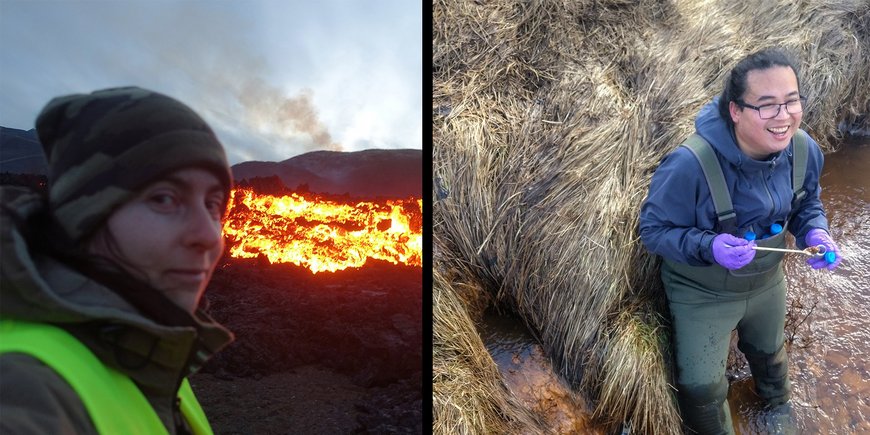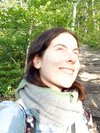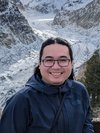Dr. Alina Shevchenko and Dr. Jeffrey Paulo Perez have received the grants of the GFZ Discovery Fund and have started their research work in November 2022.
Alina Shevchenko's project is devoted to the investigation of volcano-cryosphere interaction and associated hazardous processes. Eruption in a glacial or permafrost environment can cause such hazards as sector collapses, landslides, lahars, volcanic lake tsunamis, and glacial lake outbursts. That is why the project aims to develop an innovative monitoring system of active volcanoes in high-latitude regions. The monitoring system will based on multisensor satellite and UAV (unmanned aerial vehicle) observations. Besides, Shevchenko uses the available photogrammetric archives of high-resolution data to reproduce topographies of rapidly changing volcanoes over several decades. This will detect morphological precursors of hazardous events and estimate the input of volcanic heat flow and climate change into the degrading cryosphere. The remote sensing results will be used for analog modeling of the hazardous processes with further hazards assessment. Section 1.4 - 'Remote Sensing and Geoinformatics' performs the research in close collaboration with the sections 'Physics of Earthquakes and Volcanoes' and 'Geomorphology'.
Shevchenko accomplished her doctoral thesis on volcanic geomorphology at Saint Petersburg State University, being also deeply involved in the process of onsite volcanic activity monitoring at the Institute of Volcanology and Seismology in Kamchatka.
Jeffrey Paulo Perez will work on organic carbon dynamics in redox-impacted Arctic soils under a warming climate. Organic carbon (OC) is stabilized by its interaction with iron (Fe) redox minerals in the soil, which help with organic matter build-up and OC retention at mineral interfaces. Applied to the massive Arctic peatland OC reservoir, this interaction influences the source/sink behavior of soil-derived greenhouse gasses. This again is important for anticipating the magnitude of soil-derived greenhouse gas release as a consequence and accelerator of climate change.
Specifically, his project will focus on developing a molecular-level biogeochemical OC-Fe interaction model. The model assesses what controls carbon cycling in (sub)Arctic environments. By elucidating OC-Fe transformation pathways and mechanisms, Perez will quantify the fundamental processes that determine OC stabilization in (sub)Arctic peatlands under future warming climate scenarios. This project will be conducted in Section “Organic Geochemistry” and implemented jointly with Section “Interface Geochemistry”.
Perez earned his PhD from the Freie Universität Berlin and GFZ Potsdam in 2020. He investigated the formation of the redox-active Fe mineral, green rust, and their interaction with arsenic species. Afterwards, he worked on Fe redox chemistry and their influence on nutrient availability in oxygen-poor modern and ancient environments.
The Fellowships of the GFZ Discovery Fund run for up to three years and support particularly innovative projects that identify future research fields within the GFZ research groups. The research topic can be chosen freely, but must be assigned to one of the GFZ's research groups in the fourth funding period of the Helmholtz Association's programme-oriented funding POF IV, as well as being interdisciplinary in nature and carried out in close cooperation with at least two GFZ sections.










![[Translate to English:] Torsten Sachs in front of a climate station on a field](/fileadmin/_processed_/3/9/csm__TorstenSachs_bearbeitet_GS_4a1365ef84.jpeg)

![[Translate to English:] left image flood at the Ahrtal: image from above, several houses are flooded; left image:: Heidi Kreibich;](/fileadmin/_processed_/4/4/csm_Bild2_9af0130e9f.png)



![[Translate to English:] Start der Vega Rakete](/fileadmin/_processed_/6/4/csm_20231201-kachel_Vega-VV23-launch_ESA-CNES-Arianespace_706716b68c.jpeg)









![[Translate to English:] Poster exhibition at the Brandenburg Hydrogen Day at the GFZ, some participants in the foreground](/fileadmin/_processed_/6/5/csm_Erster_Brandenburgischer_Wasserstofftag_GFZ_402fcec95e.jpeg)
![[Translate to English:] Group picture of the participants](/fileadmin/_processed_/9/4/csm_20231108_CAWa-Workshop-Tashkent_Gruppenbild_99ea779d8a.jpeg)

![[Translate to English:] [Translate to English:] Hörsaal](/fileadmin/_processed_/e/6/csm_H%C3%B6rsal_e21ac645fb.jpeg)


![[Translate to English:] The Delegations in the Historic Library on the Telegrafenberg. In the back there are from left to right, the Dutch Ambassador for Germany, Ronald van Roeden, the Dutch Minister for Education, Culture and Science, Robbert Dijkgraaf and the scientific director of the GFZ, Susanne Buiter.](/fileadmin/_processed_/d/b/csm_Kachel-2_9eba4b4212.jpeg)

